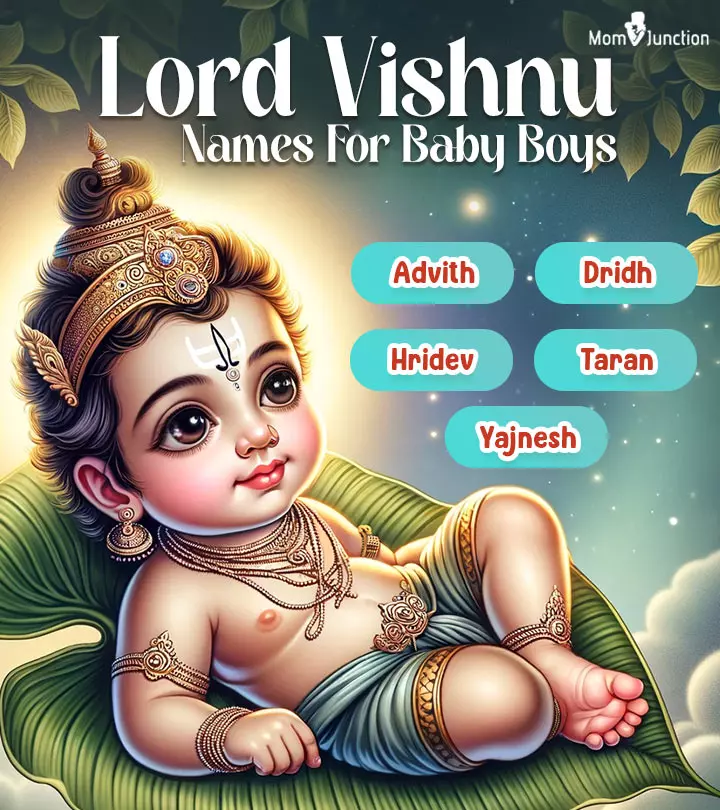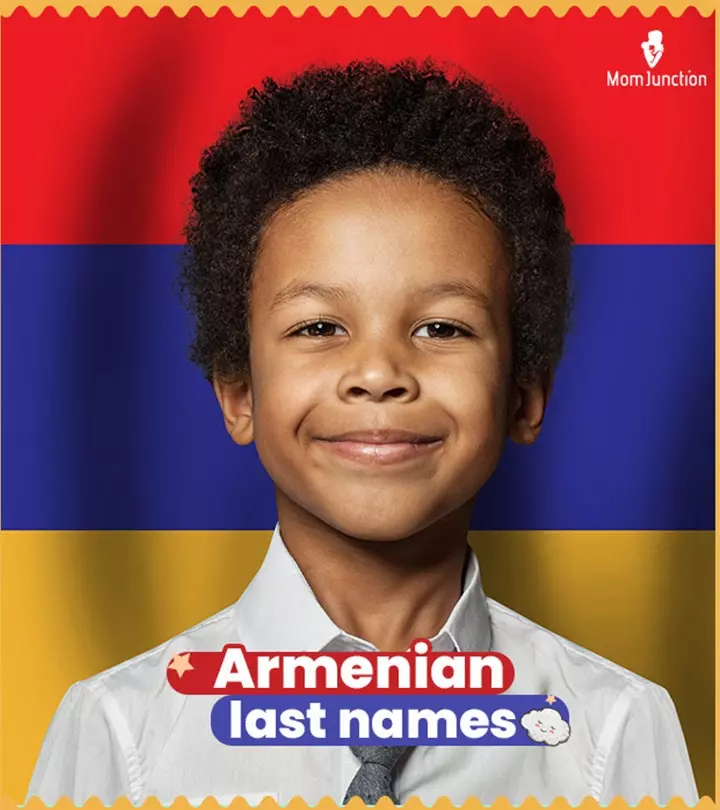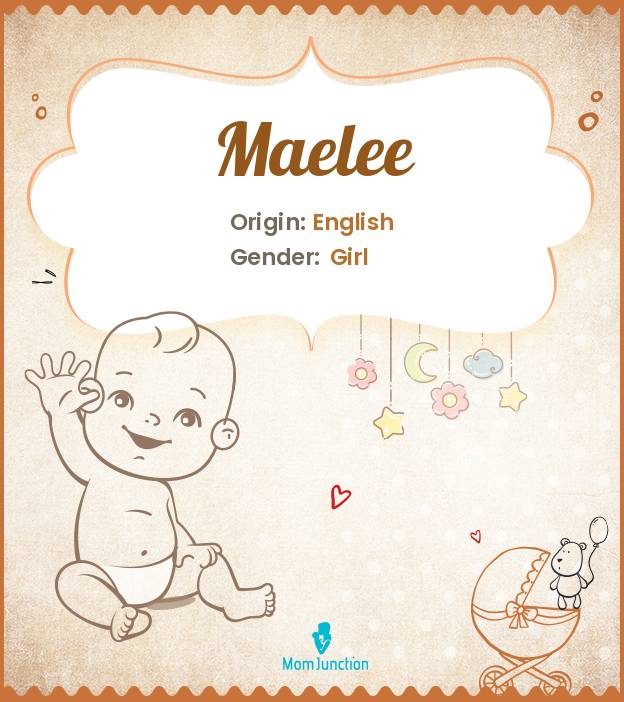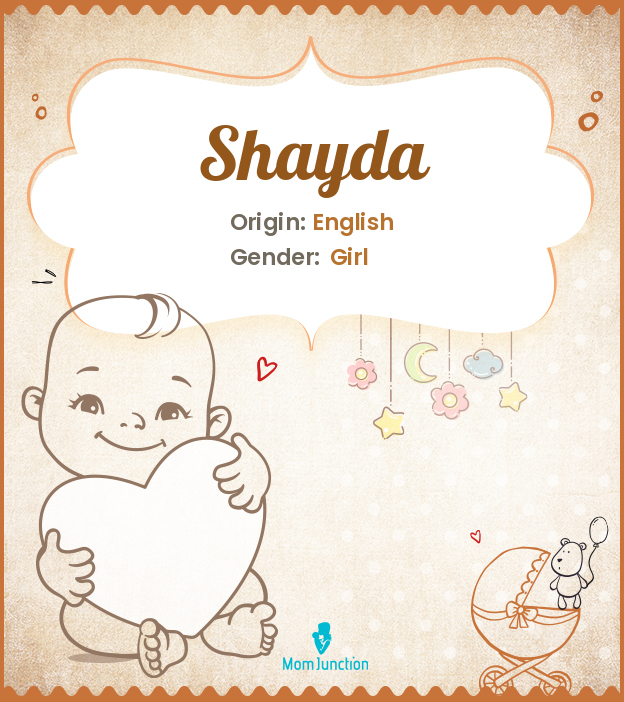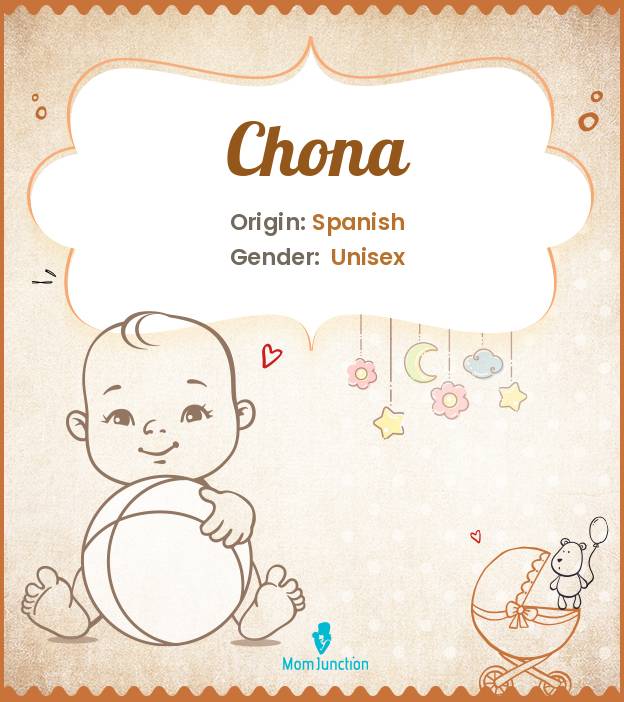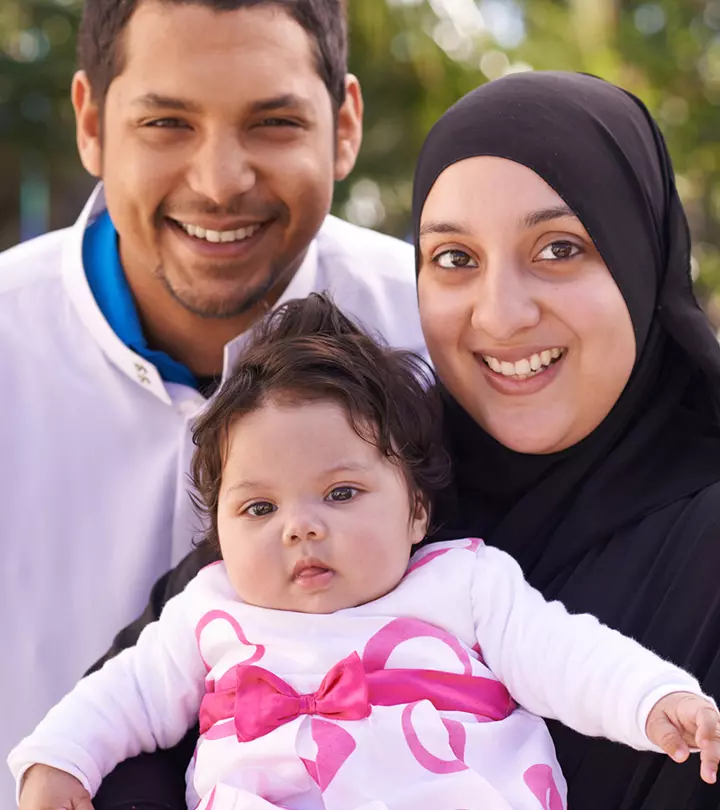
Image: iStock

From the rugged mountains of the north to the fertile plains of Punjab and Sindh, Pakistani last names are a testament to the country’s rich cultural tapestry. They echo different linguistic and cultural traditions, offering a fascinating glimpse into Pakistan’s past and present. These names draw inspiration from various languages and cultures, including Arabic, Sanskrit, Hindi, Pashto, Persian, and Punjabi. Typically, Pakistani last names are extended with the names of their tribes or religions. Given that the majority of Pakistanis follow Islam, they often incorporate names of Islamic significance into their first or last names.
Another notable aspect seen in Pakistani last names is the historical practice of patronymics, where the most-used names of the father determine the son’s last name. For instance, if the father of Fawad is named Muhammad Afzal but is commonly referred to as Afzal, the son will be named Fawad Afzal. However, there are some exceptions to this rule, such as the family names Khan and Shah (1). In recent years, Pakistani last names have also been inspired by European naming conventions, reflecting the country’s evolving cultural landscape. Keep reading to learn more about the diverse world of Pakistani surnames and their meanings.
Key Pointers
- Pakistani surnames are usually derived from Arabic, though they also have influences from Pashto, Persian, Sanskrit, and more.
- Many Pakistani surnames are derived from the Quran and are directly associated with Allah or the Prophet Muhammad.
- Pakistani last names may also be derived from tribe and clan names.
Pakistani Last Names
Common Pakistani Last Names
Pakistani last names are usually derived from the Quran or are patronymics that show lineage and nobility, These last names are some of the most well-known ones in the country.
1. Abbas
Abbas is an Arabic and Urdu surname derived from the same given name. It means ‘austere’ or ‘lion’ in Arabic. Other forms of Abbas include Abbes, Abass, Abas, and Abbaas.
2. Abbasi
Derived from the given name Abbas, this surname is used in Persian and Urdu. It means ‘austere’ in Arabic. One of the most famous persons with this last name is Ali Abbasi, an Iranian filmmaker, who is known for his movies Shelley, Border, and more.
3. Afzal
Another surname derived from a given name, Afzal means ‘better’ or ‘superior’ in Arabic. It is pronounced as AF-dal.
4. Ahmad
Pronounced as AH-mad, this surname is also derived from the same given name. It means ‘most commendable’ or ‘most praiseworthy’ in Arabic and is also spelled as Ahmed.
5. Akram
Considered to be the superlative form of Karim, Akram is derived from the same given name. It means ‘most generous’ in Arabic.
6. Alam
Alam could either mean ‘world,’ ‘universe,’ or ‘flag,’ ‘sign,’ and ‘mark’ in Arabic. Variants of Alam include Alami and Aalam.
7. Ali
Derived from the same given name, Ali means ‘lofty’ and ‘sublime’ in Arabic. It is used as a male given name and surname but has feminine variants. American boxer, activist, and philanthropist Muhammad Ali is one of the most famous persons with this name.
8. Anwar
Also derived from the same given name, Anwar means ‘brighter’ or ‘more luminous’ in Arabic. It is variously spelled as Anwer, Anwaar, Anwari, and Anouar.
9. Arshad
Arshad is both an Arabic and Urdu surname and is derived from the same given name. It means ‘more rightly guided’, ‘more mature,’ and ‘more sensible’ in Arabic.
10. Asghar
The surname is used in Arabic, Urdu, and Persian. It is derived from the same given name and means ‘smallest’ or ‘youngest’ in Arabic.
11. Ashraf
Spelled variously as Achraf and Eshref, Ashraf is derived from the same given name. It means ‘nobler’ and ‘more honorable’ in Arabic.
12. Asif
Asif is used as an Arabic and Urdu surname. It is derived from the Arabic given name and means ‘forgiveness’. Asif is also one of the lesser-known Bengali surnames.
13. Bakhsh
Bakhsh is a Muslim surname found mainly in Pakistan, Iran, and India. It is derived from the Persian word ‘bakhsh’, which means ‘fortune’.
14. Begam
A derivative of Begum, this surname is derived from a nickname. It was originally used as a title for Muslim women in southern Asia and is derived from the Turkic title ‘beg’, which means ‘chieftain’.
15. Bibi
Bibi is another surname that originated as a nickname. It was used as an honorific for a Muslim woman and literally means ‘woman,’ ‘lady,’ or ‘miss’.
16. Dad
Pronounced as D-ah-d, this surname is often found in the Punjab region of Pakistan and India. It means ‘the one who gives’. Dutt and Ditta are its variants.
17. Din
Also spelled as Deen, this surname is used both in Pakistan and India. It means ‘religion,’ ‘faith,’ or ‘belief’ in Arabic.
18. Gul
Derived from the Persian word ‘gol’, which means ‘flower’ or ‘rose’, Gul is used in several regions including Pakistan, Afghanistan, India, and Balochistan. It is also written as Gül or Gol.
19. Haider
Pronounced as HIE-dar, this surname is derived from the same given name. It is a ferocious name and means ‘lion’ or ‘warrior’ in Arabic. It has several variants, including Haydar, Hajdar, Hayder, Heidae, Heydar, and Haidr.
20. Hassan
Derived from the same given name, Hassan is used as an Arabic, Persian, and Urdu surname. It means ‘beautifier’ or ‘improver’ in Arabic. Incidentally, Hassan is also used as a Japanese surname.
21. Imran
Imran is yet another surname derived from the same given name. It is considered to be the Arabic version of Amram, which means ‘exalted people’ in Hebrew. Imran has several variants such as Imraan, Emran, and Omran.
 Did you know?
Did you know?22. Iqbal
Iqbal is a surname and given name that may mean ‘good fortune’ and ‘prosperity’ in Persian and ‘power,’ ‘force,’ and ‘one who is strong’ in Punjabi. Other forms of Iqbal include Eqbal, Ikbal, and Eghbal. Dr. Muhammad Iqbal was a South Asian Muslim philosopher, author, and poet, and is considered one of the greatest poets of the 20th century (2).
23. Javed
Javed is a Persian and Urdu surname derived from the same given name. It means ‘eternal’ in Persian. This surname is used predominantly in Pakistan, but also in other countries such as India, Afghanistan, and Yemen.
24. Jan
Jan is used as an Urdu, Pashto, and Punjabi last name. It could mean either ‘soul’ or ‘dear’ in Kazakh and is derived from Persian.
25. Khalid
Khalid means ‘eternal’ in Arabic. Khalid is also spelled as Khaleed and Khaled.
26. Khatoon
Pronounced as KAH-toon in Hindi and KHAH-toon in Hindi and Urdu, this surname means ‘lady’ or ‘noblewoman’ and is considered to be the feminine counterpart of Khan.
27. Latif
Latif means ‘gentle’ and ‘kind’ in Arabic. Latif or Lateef is one of the 99 names of Allah and hence, is considered to be one of the holiest names in Islam (3).
28. Majeed
Also spelled as Majid, this surname is derived from the same Arabic and Persian given name. It means ‘glorious’ in Arabic.
29. Malik
Malik literally means ‘king’ in Arabic. It is also one of the 99 names of Allah, which makes it divine (4). Malik is spelled variously as Mallick, Malick, Malek, and Maleek, among others.
30. Mehmood
Also spelled as Mehmud, this Urdu surname means ‘praised’ in Arabic and shares the same root as Muhammad.
31. Nadeem
Derived from the given name Nadim, this surname literally means ‘drinking companion’ in Arabic. It is used as both an Arabic and Urdu surname.
32. Parveen
Parveen means ‘the Pleiades’ in Persian. It is used as an Urdu and Hindi surname.
33. Qadir
Qadir is among the well-known Arabic last names. It is pronounced as either KA-deer or ka-DEER. It is derived from the same given name and means ‘capable,’ ‘powerful,’ and ‘mighty.’ Al-Qadir is one of the 99 names of Allah (5).
34. Rafeeq
Pronounced as ra-FEEK, this surname is used in Arabic, Urdu, and Dhivehi. It means ‘friend’ or ‘gentle’ in Arabic.
35. Rasheed
Derived from the Arabic given name Rashid, this surname means ‘rightly guided’ in Arabic. Al-Rasheed is one of the 99 names of Allah (6).
36. Raza
Pronounced as RU-zah, Raza is derived from the given name Ridha. It means ‘satisfaction’ and ‘contentment’ in Arabic. Other forms of Raza include Reza, Ridha, and Riza.
37. Riaz
Derived from the given name Riad, this surname means ‘meadows’ or ‘gardens’ in Arabic. Riaz is used as a surname in India and Bangladesh, too.

Image: Momjunction Design Team
38. Sadiq
Derived from the same Arabic and Urdu given name, Sadiq means ‘true,’ ‘sincere,’ and ‘loyal’ in Arabic. It is pronounced SA-deek.
39. Saleem
Saleem is an Arabic, Dhivehi, and Urdu surname. It is derived from the given name Salim, which means ‘safe,’ ‘sound,’ and ‘intact’ in Arabic.
40. Saeed
Pronounced as sa-‘EED in Arabic, this surname is a variant of Sa’id and means ‘happy’ and ‘lucky’ in Arabic. It has variants, such as Said and Saeedi.
41. Shafi
Derived from the same Urdu and Bengali given name, this surname means ‘intercessor’ or ‘mediator.’ It is a Quranic name that appears in Quran 10:4 (7).
42. Shah
Shah is a Persian and Urdu surname derived from the Persian word ‘shah’, which means ‘king’. Incidentally, Shah is also a Hindu surname used in India.
43. Shahid
Pronounced as SHA-heed, this surname is derived from the same Arabic and Urdu given name. It means ‘witness’ in Arabic.
44. Shahzad
The surname is used in Urdu and Pashto and is derived from the same given name. It means ‘prince’ or ‘son of the king’ in Persian. It may also be spelled as Shahazad or Shahzada.
45. Shaikh
One of the most common Muslim last names or surnames in Pakistan, Bangladesh, and India, Shaikh is also spelled as Sheikh, Sheykh, or Shaykh. It is an occupational surname that means ‘chief,’ ‘chieftain,’ or ‘head’.
46. Sherazi
An Urdu form of Shirazi, Sherazi has Persian roots. It is a habitational name for someone from the city of Shiraz in Iran.
47. Siddique
Spelled as Siddiqi, Sieddiq, and Siddiq, this surname is an alternative of Siddiqui. These names are derived from Sadiq and mean ‘true,’ ‘truthful,’ and ‘veracious.’
48. Ullah
Ullah is a Pakistani surname that literally means ‘of Allah’ or ‘of God’. It is derived from Allah and is often used as a part of Islamic given names and surnames.
49. Umar
Pronounced as OO-mar in Arabic and O-mar in Egyptian Arabic, this surname is derived from the same name. It comes from the Arabic word ‘umr’, which means ‘life’, and means ‘populous’ or ‘flourishing’.
50. Yaqoob
Derived from the given name Yaqub, this surname is the Arabic form of Ya’aqov. It is the Arabic variant of Jacob, which means ‘supplanter’ or ‘holder of the heel’.
Popular Pakistani Last Names
These popular Pakistani last names are used extensively in Pakistan and around the world. Many renowned individuals are bearers of these surnames.
51. Ajmal
Ajmal is an Arabic and Urdu last name derived from the same given name. It is considered to be the elative form of ‘jamil’ and means ‘more beautiful’ or ‘prettier’.
52. Akbar
Also spelled as Akbari, this surname means ‘greater’ or ‘greatest’ in Arabic. Akbar is the name of a famous 16th-century Mughal ruler in the Indian subcontinent.
53. Akhtar
Akhtar is a surname that was originally used as a nickname. It has Persian roots and means ‘star’.
54. Ameen
Alternatively spelled as Amin, these surnames are derived from the same given name. It means ‘truthful’ in Arabic.
55. Arif
Spelled as Aref, Areef, and Aarif, this surname is derived from a first name. It means ‘learned,’ ‘knowing,’ or ‘expert’ in Arabic.
56. Aslam
Derived from the same given name, Aslam means ‘safer’ or ‘healthier’ in Arabic. Incidentally, Aslam is also an English topographical surname.
57. Azam
A surname that means ‘greater’ or ‘greatest,’ Azam is derived from the same given name. Azzam is a variant of Azam.
58. Aziz
Aziz is derived from a given name that means ‘powerful,’ ‘respected,’ and ‘beloved’ in Arabic. Al-Aziz is one of the 99 names of Allah (8).
59. Bano
An alternative spelling of the Hindi, Banu, this surname originated as a respectful title for women. It has Persian origins and means ‘lady’.
60. Bashir
Also spelled as Basheer and Basher, this surname is derived from the same given name. It means ‘bringer of good news’, ‘herald’, and ‘harbinger’ in Arabic.
61. Bhutto
Bhutto is the name of a Sindhi clan in Pakistan. The Bhuttos and Bhattis are considered to be a branch of the Bhati Rajputs. In Pakistan, the Bhutto family is a prominent political party, with two members of the family having served as Prime Ministers and one as President.
62. Bilal
Bilal is an Arabic, Urdu, and Turkish surname and is derived from the same given name. It means ‘water’ or ‘moisture’ in Arabic.
63. Butt
Also spelled as But, Bhat, and Bhatta, Butt is a Pakistani last name that is considered to be the Urdu and Kashmiri form of Bhatt. Surprisingly, Bhatt is derived from Sanskrit and means ‘lord’ or ‘learned one’.
64. Bux
Bux has Persian roots and means ‘fortune’, ‘section’, ‘portion’, or ‘part.’ Variants of Bux include Buksh, Bukhsh, Baksh, and Bakhsh. Incidentally, Bux is also an Anglo-Saxon surname.
65. Farooq
Pronounced as fa-ROOK, this surname means ‘person who can tell right from wrong’. Farooq has several variations such as Farouq, Farouk, Faruq, Farooque, and Faruque.
66. Hameed
Derived from the given name Hamid, this surname means ‘praiseworthy’. Hameed is one of the 99 names of Allah (9).
67. Hamza
Hamza is a Pakistani surname that is derived from the same given name and possibly means ‘strong’ or ‘steadfast’. Hamzah and Xamza are some of its variants.
68. Hanif
Pronounced as ha-NEEF, this surname is derived from the same given name. It means ‘true’ and ‘upright’ in Arabic. It can also be spelled as Haneef.
69. Hussain
Hussain is derived from the given name Husayn and means ‘handsome’ in Arabic. Hussein, Həsənov, Hüseynov, and Hosseini are some variants of Hussain.
70. Ibrahim
Ibrahim is an Arabic, Urdu, Bengali, and Dhivehi surname. It is the Arabic form of Abraham and means ‘father of many’. Ibraheem, Ebrahim, and Ebraheem are its variants.
71. Ilyas
Another surname that is derived from a given name, Ilyas is the Arabic equivalent of Elijah. It means ‘my God is Yahweh’ and has different variations such as Ilyass, Ilyes, Ilyess, Elyes, Iliyas, and Iliya, among others.
72. Irfan
Pronounced as eer-FAN, this simple surname is derived from the given name Irfan. It means ‘knowledge’, ‘awareness’, and ‘learning’ in Arabic.
73. Ismail
Ismail is derived from the given name Isma’il. It is an Arabic form of Ishmael and means ‘God will hear’.
74. Junaid
Pronounced as joo-NIED, Junaid is derived from the given name Junayd. It has Arabic roots and means ‘small army’.
75. Khan
Khan is a Pakistani surname, which is probably of Mongolian origin. It means ‘king’ or ‘ruler’, and is also used as an Indian and Afghanistani surname.
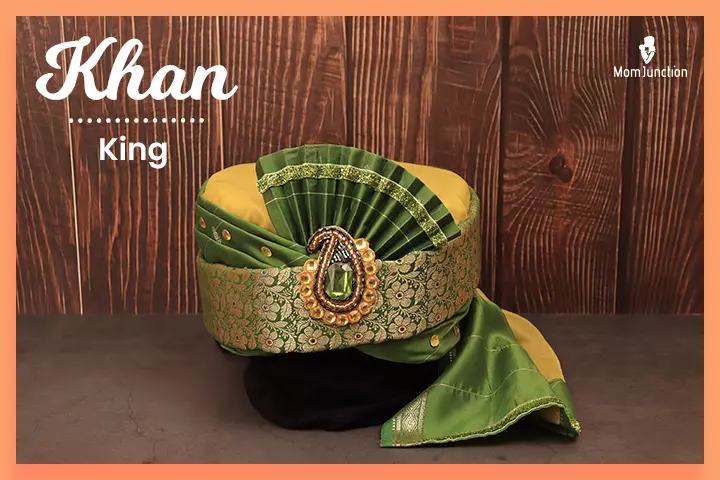
Image: Momjunction Design Team
76. Kausar
Derived from the same given name, Kausar means ‘abundance’ in Arabic. It has several variants such as Kautsar, Kauser, Kawther, or Kaouthar.
77. Muhammad
Considered to be a holy name in Islam because of its association with Prophet Muhammad, this surname is derived from the same given name and means ‘praised’ and ‘commendable’. It is one of the most popular surnames in Islam and is used in other languages as Mohamed, Mohammed, Mohammed, Mehmedović, and Mohammadi.
78. Mushtaq
Mushtaq is pronounced as MOOSH-tak and is derived from the same given name. It means ‘desirous’, ‘eager’, and ‘yearning’ in Arabic.
79. Mustafa
Mustafa means ‘the chosen one’ in Arabic. Moustafa, Mustapha, and Moostafa are some of its variants.
80. Nasir
Pronounced both as NA-seer and na-SEER, this Pakistani last name is derived from the same given name. It means ‘helper’ in Arabic.
81. Nawaz
Nawaz is an Urdu surname used in Pakistan and India. It has Persian roots and means ‘caress’, ‘cherish’, and ‘soothe’.
82. Nabi
Nabi is derived from the same Arabic given name and means ‘prophet’. One of the most well-known bearers of this name was Yusuf Nabi, a Turkish poet in the court of Mehmet IV.
83. Naeem
Naeem is derived from the given name Na’im. It means ‘tranquil’, ‘happy’, and ‘at ease’ in Arabic. Na’im and Naim are its variants.
84. Naz
Pronounced as NAHZ, this surname was originally used as a nickname. It has Persian roots and means ‘comfort’, ‘luxury’, and ‘affection’.
85. Noor
Also spelled as Nour and Nuur, Noor is a variant of Nur. It means ‘light’ in Arabic. Incidentally, it is also an Estonian surname that means ‘young’.
86. Qasim
Derived from the same given name, Qasim means ‘one who divides goods among his people’. Variants of Qasim include Qaseem, Qasem, and Qassim.
87. Qureshi
Qureshi denotes a member of the Quraysh, the Arab tribe to which Prophet Muhammad belonged. Qureshi, Qurashi, Qurashy, and Quraishi are some of its many variants. It’s derived from Arabic ‘qarasha’, which means ‘to gnash’ or ‘to grind’.
88. Rasool
Rasool is derived from the given name Rasul and means ‘prophet’, ‘apostle’, or ‘messenger’ in Arabic. Rasoul and Resul are variants of Rasool.
89. Ramzan
Ramzan is one of the few Islamic names derived from the name of a month. It is a variant of Ramadan, which is considered to be a holy month in the Islamic calendar.
90. Razzaq
Another surname that is derived from a given name, Razzaq means ‘provider’ or ‘sustainer’ in Arabic. It is one of the 99 names of Allah (12).
91. Rehman
Also spelled as Rahman and Rehmani, Rehman is derived from the same given name. It means ‘merciful’ in Arabic. Rahman is one of the 99 names of Allah (13).
92. Shabbir
Shabbir is derived from the same given name. It has Hebrew origin and is considered to be the name of prophet Harun’s son. It means ‘patient’, ‘steadfast’, and ‘enduring’ in Arabic.
93. Shafique
Shafique is derived from the given name Shafiq. It means ‘compassionate’ in Arabic.
94. Sharif
Pronounced as sha-REEF in Arabic and shə-REEF in Urdu, Sharif means ‘eminent’ and ‘virtuous’ in Arabic. It was a respectful title for descendants of Prophet Muhammad through his daughter Fatima.
95. Shoaib
Derived from the same given name, Shoaib is pronounced as shoo-ieb in Arabic. It is the name of a Midianite prophet in the Quran, sometimes identified as Jethro.
96. Suhail
Suhail is derived from the same Arabic given name. It is derived from the Arabic word ‘sahula’, which means ‘level’ or ‘even’. Suhail was the pen name of the famous Urdu poet Iqbal Ahmed Khan.
 Trivia
Trivia97. Sultan
Sultan was originally used as a title and means ‘ruler’ in Arabic. It is also spelled as Sultana.
98. Tahir
Also spelled as Taheer and Taher, this surname is derived from the given name Tahir. It means ‘virtuous’, ‘pure’, and ‘chaste’ in Arabic.
99. Usman
Pronounced as ooth-MAN, this surname is derived from the given name Uthman, which means ‘baby bustard’ in Arabic. Othman and Osman are some variants of Usman. Osman I was the founder of the Ottoman Empire in the 13th century (15).
100. Yousaf
Yousaf is a Pakistani surname that is considered to be the Urdu variant of Yosef or Joseph. It means ‘He will add’.
101. Yousafzai
A surname of Pashto origins, Yousafzai means ‘son of Yusuf’. One of the most well-known bearers of this name is Malala Yousafzai, a Pakistani education and human rights activist and a Nobel Peace Prize winner.
102. Younis
Younis is derived from the given name Yunus and is pronounced similarly. These names are the Arabic variants of Jonah, which means ‘dove’.
Unique Pakistani Last Names
These Pakistani surnames are usually used only in Pakistan or are rare. Take a look at this list of these unique last names with their meanings.
103. Abrar
Derived from the same given name, Abrar means ‘virtuous’ in Arabic. Interestingly, as a given name, it is generally used as a feminine name in Arab countries but as a masculine name in Pakistan, India, and Bangladesh.
104. Achakzai
The surname is derived from Pashto and is considered to be a possessive one. It means ‘son of Achak’, and has roots in the Siksika language used by the Blackfoot people of Alberta and Montana. It means ‘spirit’ in Siksika and Algonquin.
105. Ahad
The surname is derived from the same given name. It means ‘one’, ‘unique’, and ‘matchless’ in Arabic and is one of the 99 names of Allah (16).
106. Alizai
Another surname with Pashto roots, Alizai means ‘son of Ali’. It is variously written as Alizay, Ali Zai, and Ali-Zai.
107. Ayubi
Used in Persian, Pashto, and Urdu, Ayubi is considered to be a variant of the Persian surname Ayoubi. These names are derived from Ayyub, which is the Arabic variant of the Biblical Job.
108. Badar
Badar is derived from the given name Badr. It means ‘full moon’ in Arabic and has special significance in Islam.
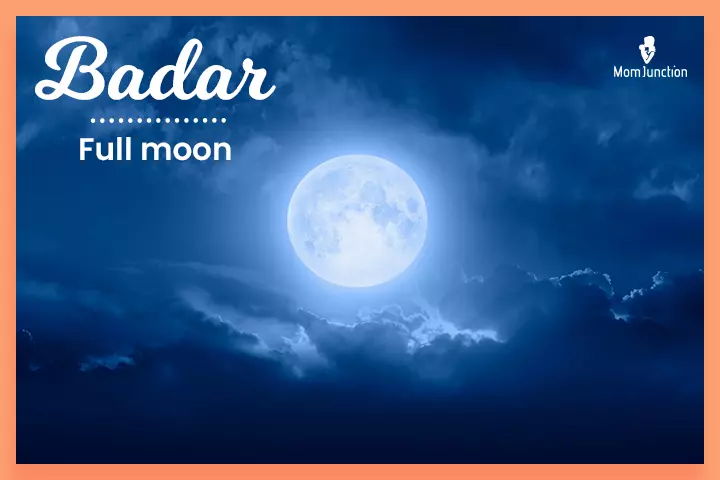
Image: Momjunction Design Team
109. Bahl
A surname that is used both in Pakistan and India, Bahl has Sanskrit roots. It means ‘strong’, ‘solid’, and ‘firm’. Incidentally, Bahl is also a German surname.
110. Bai
Bai is possibly derived from the Hindi word for ‘lady’. It is used as a surname in India in many languages. Bai is also a Chinese surname.
111. Bal
Also written as Bal Gill, Bal is found among Sikh and Muslim Jat families in Punjab. It could also have Turkish origins from the word ‘bal’, which means ‘honey’..
112. Bhatti
Spelled variously as Bhati, Bhat, and Bhatta, this surname is a variant of Bhatt. It is derived from Sanskrit and means ‘lord’ and ‘learned one’.
113. Chawla
Chawla is derived from the name of a clan in the Arora community of the Punjab region of India and Pakistan. It is derived from the Sanskrit word ‘chawal’, which means ‘rice’. Alternatively, it could also be a habitational name derived from Rohri in Pakistan.
114. Cheema
Cheema is a Punjabi Jat surname of a sub-clan in India and Pakistan. It is used in both Shahmukhi and Gurmukhi and is also spelled as Chima.
115. Chishti
Chishti was developed as a toponymic surname from Chisht in Afghanistan. It is also spelled as Chishty and is used by people who are descendants of Moinuddin Chishti.
116. Ditta
Ditta is derived from the Urdu Dutta, which, in turn, comes from Datta. It has Sanskrit roots and means ‘given’ or ‘granted’.
117. Ejaz
Derived from the given name Ijaz, this surname means ‘miracle’ or ‘inimitability’ in Arabic. It is usually used to describe the miraculous nature of the Quran.
118. Elahi
Elahi is derived from the given name Ilahi, which has Aramaic roots. It means ‘My God.’ Elah means ‘god’ and the suffix -i means ‘my’. It is found in the Old Testament.
119. Essa
Derived from the given name Isa, Essa is the Arabic form of Jesus. It is considered to be a holy name and is pronounced as EE-sa.
120. Fahad
Fahad is derived from the same Arabic given name. These names come from Fahd, which means ‘panther’ in Arabic.
121. Farhat
Pronounced as far-HAT, this surname means ‘joy,’ ‘mirth,’ and ‘delight’ in Arabic. It has several variants such as Farhad, Ferhat, Farhadi, Farhâdi, Ferhati, Ferhatović, Ferhatoğlu, and Fərhadov.
122. Fatima
Also written as Fatma, this surname is derived from the given name Fatimah. It means ‘to abstain’ in Arabic and was the name of the daughter of Prophet Muhammad (17) (18). Fatima is considered to be a holy name among Shia Muslims.
123. Fawad
Another Pakistani surname that is derived from a given name, Fawad means ‘heart’ in Arabic. It is derived from the Arabic word ‘fu’ad’.
124. Fayaz
Pronounced as fie-YAD in Arabic, Fayaz means ‘generous’ or ‘charitable’ in Arabic. It is also used as a Dhivehi surname.
125. Ganjoo
Ganjoo is a surname that is used in the Kashmiri Pandit clan. It was derived as an occupational name for a treasurer in a king’s court.
126. Ghafoor
The surname is derived from the given name Ghafur, which means ‘forgiving’ in Arabic. It is one of the 99 names of Allah (19).
127. Ghengat
Also spelled as Ghenghat and Ghen’ghat, this surname belongs to the Mewati Rajput clan of Muslims in Pakistan. It is considered to be a sister clan of the Bhatis and the Jaduns.
128. Haq
Alternatively spelled as Haque, Haqq, and Hoque, this surname means ‘true’, ‘right’, and ‘real’ in Arabic. It is mainly used in the Indian subcontinent but you can find it in other Muslim countries, too.
129. Haris
Derived from the given name Harith, this surname means ‘plowman’ or ‘cultivator’ in Arabic. It was possibly an occupational name for a farmer.
130. Hayat
Hayat is derived from the same given name and means ‘life’ in Arabic. It has variants such as Hayet and Hayah. Incidentally, Hayat is also a Hebrew surname.
131. Isa
Spelled variously as Issa, Eissa, and Eisa, this surname is considered to be a holy name in Islam. Isa is the Arabic name of Jesus and appears in the Quran.
132. Mugheri
Also spelled as Mughery or Mughairi, this surname belongs to a Pakistani clan who are descendants of Arabs. It is considered to be a patronymic that originated from Field Marshal Mughera Bin Zaid Bin Hatim, who served during the Abbasid Caliphate.
133. Nanjiani
Nanjiani could be possibly derived from the Hindi and Urdu word ‘nanhe’, which means ‘young’. Kumail Nanjiani, a Pakistani-American actor, is a famous bearer of this name.
134. Naqvi
Naqvi is a Pakistani last name that has Arabic roots. It means ‘pure’ or ‘clean’, and is the name of a Shi’ite clan in Iran, Iraq, and South Asia.
135. Pasha
Derived as a status name or an occupational name, this surname could mean ‘king’ from the Persian word ‘padeshah’ or ‘head’ and ‘lord’ from the Turkish word ‘baş’. Incidentally, Pasha is also an Albanian and Turkish surname.
136. Passi
Passi is a Pakistani and Indian surname used mostly by the Punjabi Khatri community. It is also an Australian surname.
137. Popalzai
Also written as Popalzay, this surname is possibly derived from the Persian word ‘pupal’, which means ‘betel nut’. The Popalzai people are a sub-tribe of the Durrani tribe in Afghanistan and Pakistan.
138. Qayyum
Derived from the same Arabic word, Qayyum means ‘subsistence’, ‘independence’, or ‘sustainer’. It is also spelled as Qayyoom.
139. Roshan
Roshan is a surname used in several languages besides Urdu, including Persian, Hindi, Bengali, Gujarati, and Punjabi. It is derived from the same given name and means ‘light’ or ‘bright’ in Persian.

Image: Momjunction Design Team
140. Samad
A surname used in Arabic, Urdu, Bengali, and Dhivehi, Samad is derived from the same given name. It means ‘eternal’ in Arabic.
141. Sattar
Sattar is used as an Arabic, Urdu, and Persian surname and is pronounced as sat-TAR in Arabic and sat-TAWR in Persian. It means ‘veil’, ‘screen’, or ‘curtain’ in Arabic.
142. Sethi
Sethi is an occupational surname derived from the Sanskrit word ‘shreshta’, which means ‘best’, ‘chief’, or ‘most excellent’.
143. Soomro
Soomro is a Pakistani surname mainly used by the Sindhi community. It originated as a habitational name from the city of Samarra in Iraq.
144. Tarar
Tarar is a surname that is found among the Jat clan of Punjabis and Muslims in Pakistan. It is mostly found in the Punjab regions of Pakistan and India.
145. Tariq
Tariq is derived from the same given name, which means ‘he who knocks at the door’ in Arabic. Tarik and Tarek are some of its variants.
146. Tumas
Spelled variously as Ṭūmās, Tuma, Ṭūmā, Toma, and Tomas, this surname is considered to be the Arabic form of Thomas, which means ‘twin’. It is pronounced as TOO-ma or TOO-mas in Arabic and Urdu and too-MA and too-MAS in Urdu.
147. Uddin
Another surname with Arabic origins, Uddin is derived from the word ‘ad-din’, which means ‘the religion’. It is usually used as a suffix for given names.
148. Wali
Wali is derived from the Arabic word ‘waliyy’, which means ‘helper’, ‘friend’, and ‘protector’. It is usually used in Islam to describe a saint. Sima Wali was a notable person with this surname. She was one of the most well-known human rights activists from Afghanistan.
149. Zaman
Zaman means ‘time’, ‘age’, or ‘era’ in Arabic. It may be used in conjunction with other surnames such as Hasan (Hasauzzaman) or Nur (Nuruzzaman) to create more meaningful surnames.
150. Zia
Pronounced as dee-YA in Arabic and JEE-a in Bengali, this Pakistani surname is derived from the given name Ziya. It means ‘splendor’, ‘light’, and ‘glow’ in Arabic.
151. Zulfiqar
Used both as a surname and a given name, Zulfiqar means ‘cleaver of the spine’. It was the name of Prophet Muhammad’s sword, later given to his son-in-law Ali.
Discover More Names
When you have to choose a name for your baby, a few hundreds of names may not be just enough. Keep digging our mine of baby names until you find that one precious gem.
Frequently Asked Questions
1. How do Pakistani last names reflect the country’s diverse culture?
Pakistani last names have roots in different ancient languages, such as Arabic, Sanskrit, and Persian. These languages influence these last names with aspects from the related culture. Moreover, the different clans and tribes of Pakistan contribute to the creation of surnames, which reflects the country’s rich history.
2. What are common last names among different ethnic groups in Pakistan?
Common surnames such as Singh, Bhatti, Bhutto, Soomro, Khan, Abbasi, and Malik are used among different ethnic groups in Pakistan.
3. How have Pakistani surnames evolved over time?
Pakistani last names have evolved significantly due to cultural exchanges and influences from various regions. Historical migrations, conquests, and colonial impacts have contributed to the diversification of surnames from different languages and cultures.
Pakistani last names encapsulate the country’s traditions and culture. From religious associations to noble lineages, these surnames cover a wide range. They also serve as a way of fostering a sense of pride and belonging among Pakistani people worldwide. These surnames remain an integral part of Pakistan’s ever-evolving culture. We hope this list offers you a glimpse into the country’s rich cultural, religious, and linguistic heritage.
Infographic: 8 Most Popular Pakistani Last Names
Pakistani last names have been influenced by ancient languages such as Arabic, Persian, and Sanskrit. Many surnames also carry influences from the neighboring languages of Pashto and Baloch. These last names are usually associated with Islam, though you will also find clan and occupational names among them. Check out the infographic below to learn about the most popular Pakistani last names.
Some thing wrong with infographic shortcode. please verify shortcode syntaxReferences
- Pakistani Culture: Naming.
https://culturalatlas.sbs.com.au/pakistani-culture/pakistani-culture-naming - Profile Of Allama Iqbal.
https://www.rekhta.org/poets/allama-iqbal/profile - 31. Al-Lateef اللطيف.
https://www.al-islam.org/ninety-nine-attributes-allah-yasin-t-al-jibouri/31-al-lateef-%D8%A7%D9%84%D9%84%D8%B7%D9%8A%D9%81 - 4. Al-Malik (المالك (أو الملك.
https://www.al-islam.org/ninety-nine-attributes-allah-yasin-t-al-jibouri/4-al-malik-%D8%A7%D9%84%D9%85%D8%A7%D9%84%D9%83-%D8%A3%D9%88-%D8%A7%D9%84%D9%85%D9%84%D9%83 - 69. Al-Qadir القادر.
https://www.al-islam.org/ninety-nine-attributes-allah-yasin-t-al-jibouri/69-al-qadir-%D8%A7%D9%84%D9%82%D8%A7%D8%AF%D8%B1 - 98. Al-Rasheed الرشيد.
https://www.al-islam.org/ninety-nine-attributes-allah-yasin-t-al-jibouri/98-al-rasheed-%D8%A7%D9%84%D8%B1%D8%B4%D9%8A%D8%AF - Chapter 10. Yunus.
https://www.alislam.org/quran/app/10 - 9. Al-’Aziz العزيز.
https://www.al-islam.org/ninety-nine-attributes-allah-yasin-t-al-jibouri/9-al-aziz-%D8%A7%D9%84%D8%B9%D8%B2%D9%8A%D8%B2 - 57. Al-Hameed الحميد.
https://www.al-islam.org/ninety-nine-attributes-allah-yasin-t-al-jibouri/57-al-hameed-%D8%A7%D9%84%D8%AD%D9%85%D9%8A%D8%AF - The Birth of Hasan and Husain.
https://www.al-islam.org/restatement-history-islam-and-muslims-sayyid-ali-asghar-razwy/birth-hasan-and-husain - A Guide To Names And Naming Practices.
https://www.fbiic.gov/public/2008/nov/Naming_practice_guide_UK_2006.pdf - 18. Al-Razzaq الرزاق.
https://www.al-islam.org/ninety-nine-attributes-allah-yasin-t-al-jibouri/18-al-razzaq-%D8%A7%D9%84%D8%B1%D8%B2%D8%A7%D9%82 - 2. Ar-Rahman الرحمن.
https://www.al-islam.org/ninety-nine-attributes-allah-yasin-t-al-jibouri/2-ar-rahman-%D8%A7%D9%84%D8%B1%D8%AD%D9%85%D9%86 - Suhail.
http://stars.astro.illinois.edu/sow/suhail.html - Osman I.
https://www.worldhistory.org/Osman_I/ - Surah Ikhlas, Chapter 112.
https://www.al-islam.org/enlightening-commentary-light-holy-quran-vol-20/surah-ikhlas-chapter-112 - The Story of Hazrat Fatima (sa), daughter of the Holy Prophet.
https://www.al-islam.org/story-holy-kaaba-and-its-people-smr-shabbar/story-hazrat-fatima-sa-daughter-holy-prophet - Fatimah bint Muhammad.
https://www-worldhistory-org.webpkgcache.com/doc/-/s/www.worldhistory.org/Fatimah_bint_Muhammad/ - 35. Al-Ghafur الغفور.
https://www.al-islam.org/ninety-nine-attributes-allah-yasin-t-al-jibouri/35-al-ghafur-%D8%A7%D9%84%D8%BA%D9%81%D9%88%D8%B1
Explore Pakistani Last Names & Their Cultural Meanings
Watch our video on Pakistani last names to uncover origin, meaning, and cultural significance. Dive in and learn about popular Pakistani surnames’ rich heritage. Watch now to explore more!
Community Experiences
Join the conversation and become a part of our nurturing community! Share your stories, experiences, and insights to connect with fellow parents.
Read full bio of Nisha Bharatan
Read full bio of Poulami Nag
Read full bio of Reshmi Das

 Quick fact
Quick fact


